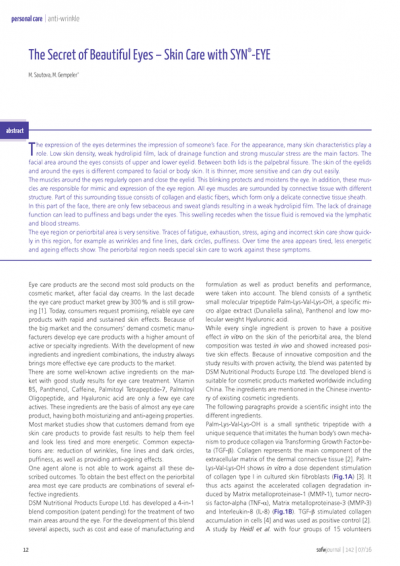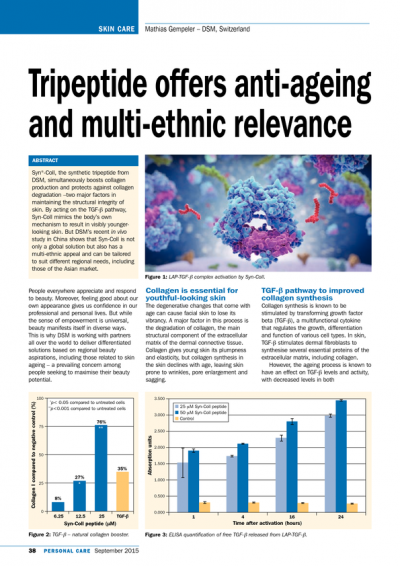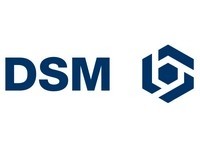Promotional Features
Ethnic skin care: the way forward or outmoded concept?
Whilst the power of beautiful skin is undeniably universal, skin care needs vary widely from person to person. Men’s skin is not the same as women’s; younger skin has different needs than older skin. Skin may be dry or oily. And skin – the largest organ in the body – differs in another way: it comes in a beautiful range of tones which are visible links to our genetic and ethnic heritage.
These differences in skin tone are caused by the distribution of melanin in the skin. Melanin distribution patterns vary not only from one ethnic group to another, but within groups and even within individuals as the skin first matures and then ages. It also varies from one part of the body to another. Leading peptide manufacturer DSM has been looking in depth at many factors affecting skin care needs, including ethnic background, and seeking differentiated solutions to meet specific requirements.
DSM undertakes its own research into consumer aspirations and expectations in search of answers not only to the question “what”, but also to the question “why”. So what are the broader influences behind consumer choices when it comes to skin care products?
Skin: an evolving story
In many regions of the world – China being a case in point – the population is still fairly homogeneous and people may have quite specific skin care needs based on cultural as well as biological factors. DSM Consumer Insight researchers who went to that country found that definitions of beauty in China often differ widely from those cited in many Western countries. They also found that Chinese women had different anti-aging skin care priorities, tending to be less worried about wrinkles than about loss of skin elasticity, enlarged pores and uneven tone.
However, globally the predominant trend is towards mixing of the various ethnicities. This process is most obvious in North America, where the Pew Research Centre predicts that, by 2050, the Caucasian ethnic group will no longer be larger than all other ethnicities together. In fact US Millennials (adults currently aged 18 to 33) are the most racially diverse generation in the history of the USA.
For manufacturers of skin care products this presents both challenges and opportunities.
The case for skin care that transcends ethnic differences
In many parts of the world, and especially among young people, there is a growing resistance to being labeled according to ethnicity, and this extends to skin care attitudes. A DSM Insights team that conducted a field study in Los Angeles and New York among mothers, daughters, aunts and friends obtained a myriad of rich insights into their notions regarding ethnicity and skin care. Many interviewees declared their opposition to the idea of categorizing people by ethnic group, believing that this simply isn't consistent with people's views of the world today, or their view of themselves. As one young woman said: “People think I’m going to be something ‘exotic’ when they see me, and I’m not. I’m just from New Jersey.”
The take-away message from consumer insights is therefore that the need for multifunctional skin actives which work equally well for all skin tones and types is set to grow.
Multiethnic study confirms global applicability of cosmetic peptide SYN-STAR
When DSM recently undertook a review of its existing peptide innovation platform, these insights informed its research. The company’s Personal Care R&D unit designed an original study with volunteers of three different ethnicities (Caucasian, Asian and African) to investigate the global applicability of a peptide ingredient for which it had discovered new cosmetic properties.
In DSM’s multiethnic study, the peptide significantly reduced the appearance of facial lines and shine in all three groups after seven days of twice-daily application. After 28 days skin was visibly smoother, less shiny and younger-looking. These findings were supported by a survey of the volunteers. Eighty-three percent of those surveyed agreed that treatment with a product containing 4% SYN-STAR left them feeling “more confident and ready for a fabulous day.”
Anti-aging and shine reduction with one multifunctional peptide
Investigations with SYN-STAR had already revealed it reduces wrinkles by stabilizing collagen in all skin types. In mature skin collagen was stabilized by a factor of more than four. But new in-vitro research showed that it also inhibits a key enzyme involved in sebum flow. This explains its other property – shine reduction. Shine reduction is a skin care priority for people of all ages, everywhere – and never more so than in this era of the ubiquitous, unforgiving camera!
Research suggests benefits of SYN-STAR include:
- Multifunctional anti-ager for all skin tones
- Visible reduction of the signs of aging and shiny skin
- Improved skin smoothness and appearance resulting in younger-looking skin
The peptide therefore has applications as a global anti-aging cream and serum, and as a skin beauty maximizer mask. It is China-listed.







